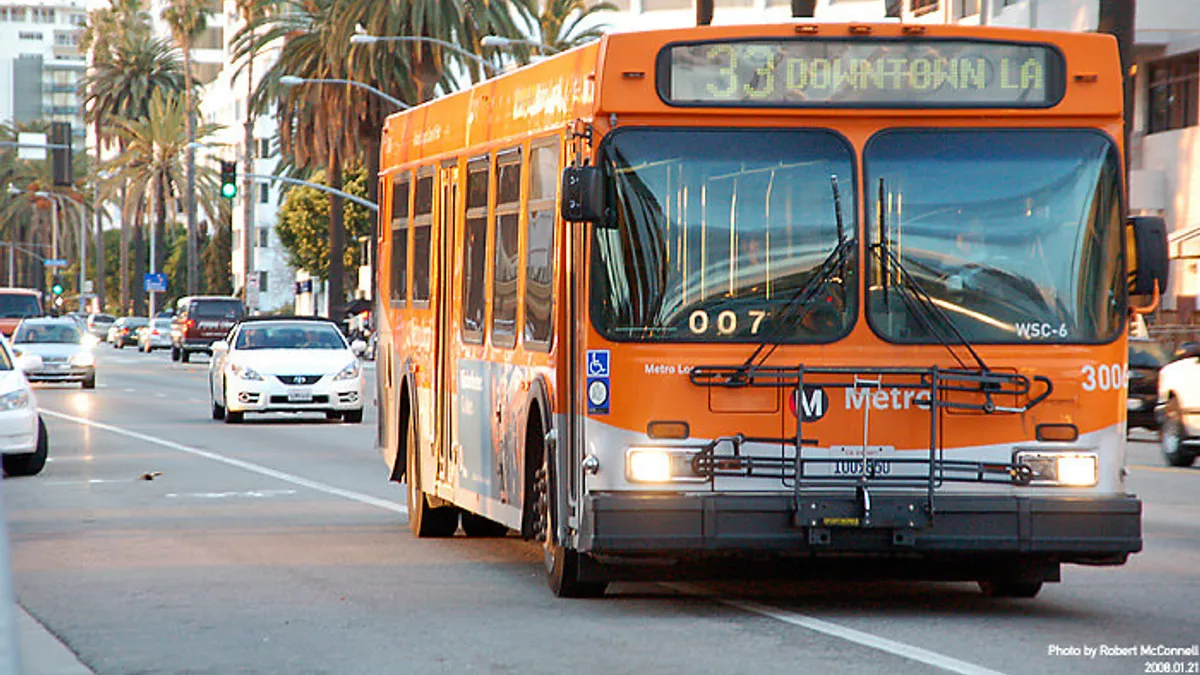Dive Brief:
- During a webinar this week hosted by Meeting of the Minds, David Dekozan of Cubic Transportation Systems and Robin O'Hara of Los Angeles Metro's TAP Smart Card Program discussed the next phases of the Los Angeles County's TAP system.
- O'Hara explained that the system, which currently gives Los Angeles' public transit riders access to more than 3,800 regional buses and 99 rail stations, will soon be developed into an account-based system that will become a one-stop shop for payments and signups across all mobility services including bike-share, microtransit, electric vehicle (EV) sharing and charging, ride-hailing and parking.
- The Mobility-as-a-Service (MaaS) solution is being built using Salesforce — LA Metro has dubbed the platform "TAPforce" — and includes a "TAPWallet" that can be loaded through various payment methods including credit cards and cash.
Dive Insight:
The system, which O'Hara said will be rolled out this fall, will bring a number of benefits to public transit riders, most notably convenience and equity. In regards to convenience, O'Hara explained that perks like discounts can be applied across all mobility systems in one click instead of a rider needing to separately apply for discounts on each program. Additionally, riders will be able to earn rewards for using mobility services, which will in turn encourage riders to branch out to other forms of public transportation.
The system will boost equity by allowing unbanked customers to load to their TAPWallet using cash. Those customers are instructed to go to the website, download a bar code, and take that code to the nearest CVS or 7-Eleven store where they can pay the cashier to load their account with cash.
O'Hara touted the new LA Metro TAP system to be unlike any other city's transit payment system, in part due to the process in which it was built. Instead of stripping the existing system, LA Metro decided to layer the regional cloud-based system on top of the Cubic-built backend system, costing the agency "pennies on the dollar" compared to other options.
The initial roll-out of the MaaS system will not be perfect, however, as functions such as door-to-door trip planning will not be available on first integration. Additionally, LA Metro is still working to get some shared mobility companies such as Lyft on board, however if the new systems sees quick success, O'Hara says there is "a lot of potential to add to the programs. We see it burgeoning as it rolls out."












